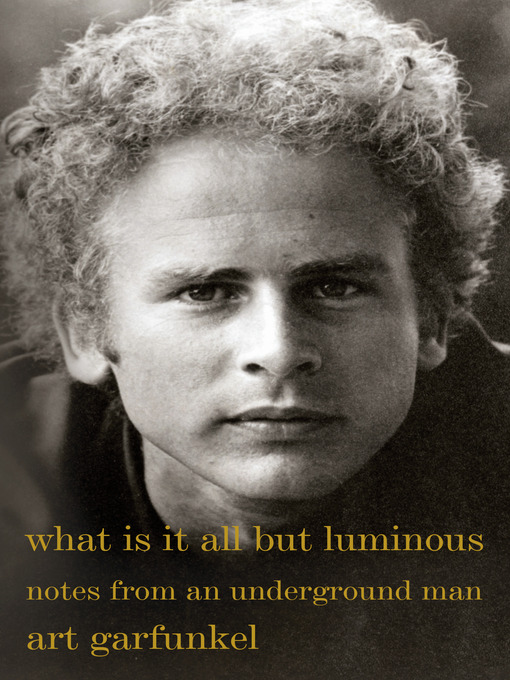- English
- 中文(简体)
—Bookreporter
"It's hard to imagine any single word that would accurately describe this book . . . an entertaining volume that's more fun to read than a conventional memoir might have been."
—The Wall Street Journal
"A charming book of prose and poetry printed in a digitalized version of his handwriting . . . witty, candid, and wildly imaginative . . . A highly intelligent man trying to make sense of his extraordinary life."
—Associated Press
From the golden-haired, curly-headed half of Simon & Garfunkel, a memoir (of sorts)—moving, lyrical impressions, interspersed throughout a narrative, punctuated by poetry, musings, lists of resonant books loved and admired, revealing a life and the making of a musician, that show us, as well, the evolution of a man, a portrait of a life-long friendship and of a collaboration that became the most successful singing duo in the roiling age that embraced, and was defined by, their pathfinding folk-rock music.
In What Is It All but Luminous, Art Garfunkel writes about growing up in the 1940s and ‘50s (son of a traveling salesman, listening as his father played Enrico Caruso records), a middle-class Jewish boy, living in a redbrick semi-attached house on Jewel Avenue in Kew Gardens, Queens.
He writes of meeting Paul Simon, the kid who made Art laugh (they met at their graduation play, Alice in Wonderland; Paul was the White Rabbit; Art, the Cheshire Cat). Of their being twelve at the birth of rock’n’roll (“it was rhythm and blues. It was black. I was captured and so was Paul”), of a demo of their song, Hey Schoolgirl for seven dollars and the actual record (with Paul’s father on bass) going to #40 on the charts.
He writes about their becoming Simon & Garfunkel, ruling the pop charts from the age of sixteen, about not being a natural performer but more a thinker, an underground man.
He writes of the hit songs; touring; about being an actor working with directors Mike Nichols (“the greatest of them all”), about choosing music over a PhD in mathematics.
And he writes about his long-unfolding split with Paul, and how and why it evolved, and after; learning to perform on his own . . . and about being a husband, a father and much more.


